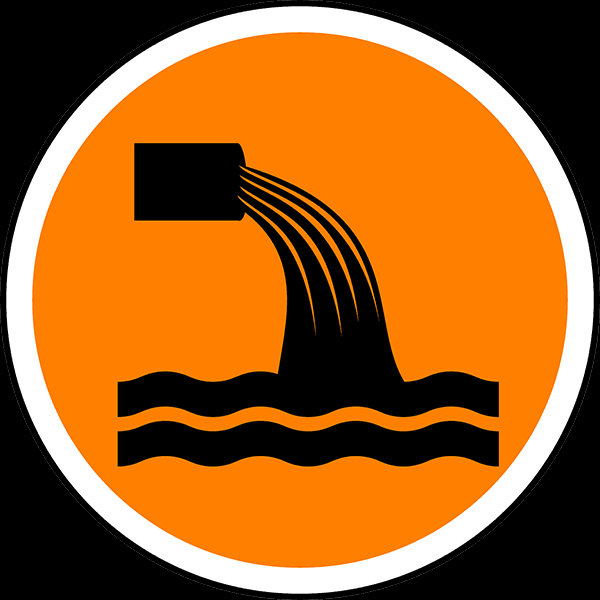Our Reclaim Waste PDFs
Our Reclaim Waste PDFs
Blog Article
How Reclaim Waste can Save You Time, Stress, and Money.
Table of ContentsThe smart Trick of Reclaim Waste That Nobody is Talking AboutFacts About Reclaim Waste RevealedOur Reclaim Waste DiariesHow Reclaim Waste can Save You Time, Stress, and Money.Reclaim Waste Things To Know Before You Buy
Via correct fluid waste monitoring, business can reduce energy-intensive therapy procedures and disposal costs. They likewise reach save resources and assign them in other pertinent procedures. There are various laws that secure public health and the atmosphere. By complying with a system for managing liquid waste, firms can prevent costly fines and penalties and prevent unfavorable publicity.(https://www.behance.net/leonaube)Collect depictive examples from different factors within the waste stream to make certain accuracy. Fluid waste, especially unsafe ones, poses significant dangers throughout this step.

Disinfection (e.g., chlorination, ultraviolet light, ozonation) and nutrient removal (e.g., denitrification and phosphorus eradication) are advised under rigorous regulations. Numerous companies violated several liquid waste disposal guidelines in recent years.
Facts About Reclaim Waste Uncovered

Shallow containers include fluid waste that is permitted to evaporate via all-natural processes. This kind of disposal is subject to strict ecological regulations due to potentially harmful emissions.
The findings ought to be recorded, evaluated, and kept not simply for entry to governing authorities yet also for making renovations in the future. Share details with relevant stakeholders (e.g., employees, regulative government agencies, and close-by areas) to keep openness and accountability.
Understanding these can aid them effectively manage their operations and minimize their ecological effect. Business that can't invest in centers need to take into consideration working together with the public market for far better options.
Facts About Reclaim Waste Revealed
By implementing extensive management systems that consist of treatment and reusing methods, regular tracking, risk analyses, and adherence to local and government guidelines, industrial facilities can add to the protection of groundwater materials, guaranteeing their schedule for future generations (liquid waste disposal). Allow's delve right into the significance of reliable liquid waste monitoring in the commercial field, concentrating on its effects for securing groundwater sources
The contamination of groundwater sources due to improper fluid waste management in the commercial field has far-reaching repercussions for human health, agriculture, and the atmosphere in its entirety. Several of the prospective effects triggered by such air pollution include: Contaminated Alcohol consumption Water Supplies: As groundwater provides a considerable part of our drinking water, pollution from commercial activities can cause harmful chemicals and microbes entering our water systems, posing health dangers for humans.
Decreased Agricultural Productivity: Agriculture relies greatly on groundwater for watering; for you could try these out that reason, contaminated water can hinder crop returns, contaminate agricultural products, and influence food safety. Given the value of preserving groundwater resources, it is important for companies to take a proactive position in managing their fluid waste sensibly and protecting against air pollution.
Unknown Facts About Reclaim Waste
Fluid waste can contaminate land and contaminate waters. Under the Security of the Environment Workflow Act 1997, services that produce fluid waste are called for to handle it in a method that protects the atmosphere and the community. Information about taking care of and keeping liquid waste, reacting to spills and minimizing fluid waste is available in the adhering to reality sheets and support:.
Water, the significance of life, is under continuous risk from contamination. The role of waste monitoring professionals in protecting this valuable resource can not be overemphasized. Their services include: Septic system and grease trap cleaning: Necessary for preventing damaging pollutants from entering our water supply. Contaminated water and polluted effluent administration: Making sure that hazardous fluids are securely removed and treated prior to they can damage our water sources.
Therefore, incorporating sustainable fluid waste management right into economic planning improves financial security and shields the atmosphere, showing the worth of this technique. Finally, embracing specialist fluid waste management techniques is important for ensuring a lasting future, protecting our atmosphere and safeguarding the well-being of future generations - industrial wastewater treatment. At E&E Waste, we are committed to cultivating a far better tomorrow with responsible activities today.
When it comes to dealing with waste, adhering to appropriate treatments is critical for a wide range of reasons. Proper waste disposal is not simply regarding tidiness; it's concerning making certain the wellness of our environment, health and wellness, and the efficient usage of resources. Recognizing the importance of reliable waste monitoring can aid all of us add to a much healthier, cleaner earth.
4 Simple Techniques For Reclaim Waste
Effective waste monitoring helps keep tidy roads and public spaces, reducing the aesthetic impact of clutter and ensuring that waste does not harm wild animals. When waste is not thrown away properly, it can result in contamination, where hazardous substances can seep into the soil, water systems, and the air, producing long-lasting environmental issues.
Report this page